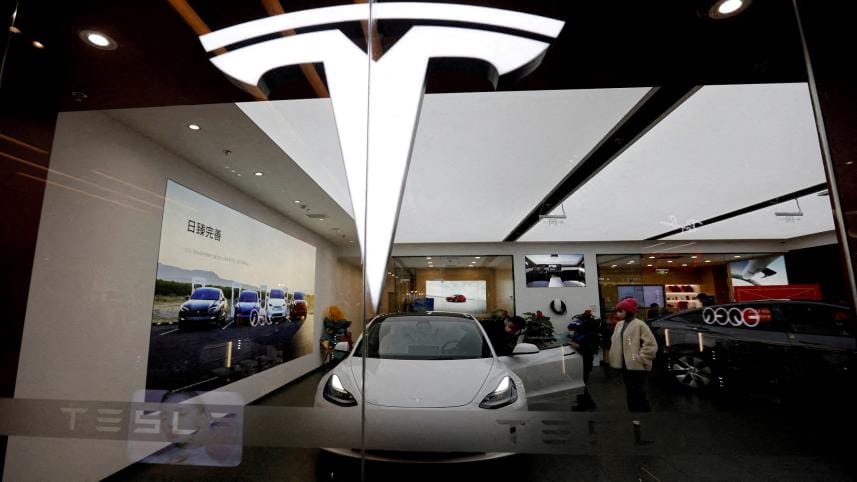Beijing powers up into car wars battleground

The Beijing Auto Show, the first since the pandemic, will be a battleground. Foreign automakers from Tesla to Toyota Motor will flaunt an arsenal of new ideas as they try to fend off their fast-growing Chinese rivals in the People's Republic and beyond.Some 700 exhibitors are expected to turn up at the fair, which starts on Thursday.
Many will have visited last year's industry gathering in Munich, where mainland brands including BYD and Xpeng threw down the gauntlet with a fleet of sophisticated, cost-competitive electric cars. China's homegrown companies ended the year with a larger combined share of the domestic market than foreign badges for the first time since the country's 2001 entry into the World Trade Organization.
The counteroffensive has started. Overseas automakers are expected to unveil as many as 30 previously unseen cars at the show, Bloomberg reports. Volkswagen , the biggest player in China, will unveil six new models. Elon Musk joined the fray on Sunday, saying he could launch Tesla's flagship "full self-driving" software in China "very soon". Toyota and Nissan Motor teased plans for concept cars and local collaborations.
Chinese competitors are upping the ante. On Tuesday smartphone maker Xiaomi announced it has already locked in more than 70,000 sales of its first model, an affordable Porsche lookalike. Autonomous driving pioneers such as Pony.ai, DeepRoute.AI and Baidu are opening new battle fronts. The latter has already been hosting rides for visitors ahead of the show in their driverless robotaxis on designated open roads around Beijing.The stakes for India's election outcome have widened.
The Chinese market alone is crucial: it's the world's biggest with sales of 22 million vehicles last year, according to the China Passenger Car Association. But the rise of its battery-powered brands also made the country the world's largest car exporter in 2023, shipping nearly 5 million units.
With some 20 percent of the motors on European Union and US roads are likely to run on batteries by 2030, according to the International Energy Agency's latest forecast published on Tuesday, there's a massive opportunity to chase – or lose. That explains why Brussels is probing whether Geely , BYD and SAIC benefit from unfair subsidies and why Washington is trying to keep Chinese cars and components out of North America.
Musk is hoping to beat his Middle Kingdom rivals at their own game. On Tuesday, days after announcing a new round of prices cuts for existing products, the boss of the world's most valuable electric-vehicle maker at $461 billion revealed it would start making even cheaper models early next year.
Whether that's enough to stop $79 billion BYD from stealing Tesla's crown as the biggest seller of pure EVs is unknown. But it's a sign that China's car wars won't run out of batteries any time soon.



 For all latest news, follow The Daily Star's Google News channel.
For all latest news, follow The Daily Star's Google News channel.
Comments